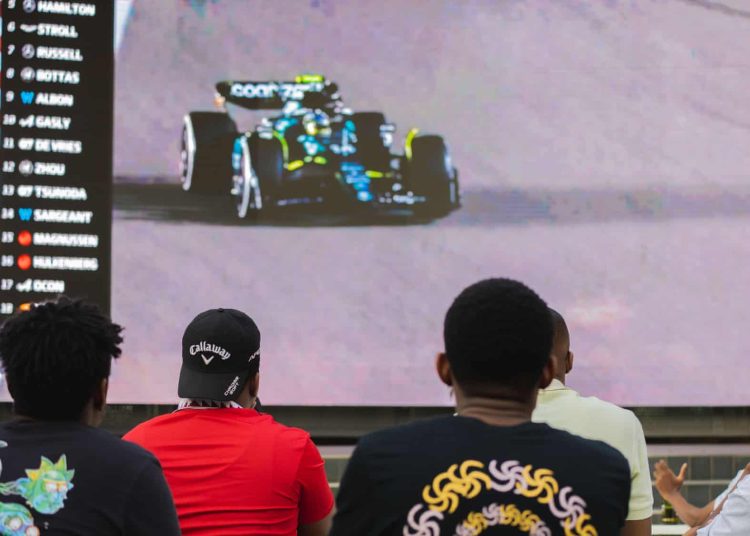Sandile Banks Ngwenya was bored and flicking through Netflix when he came across the series Drive to Survive, which chronicled Formula One’s 2018 season. It was March 2019 and he was immediately hooked – so much so that he flew from South Africa to Bahrain at the end of March for that year’s grand prix race.
“I just couldn’t believe how interesting the sport was,” said Ngwenya, 31, who lives in Johannesburg and works for his family’s hospitality business. “Now, as things stand, it’s number one on my list in terms of sports that I watch. The rest have been relegated.”
Ngwenya, who has also travelled to races in Brazil, Hungary, Italy, Singapore and Abu Dhabi, is part of a new wave of F1 fans in Africa calling for the sport to return to the continent for the first time since the 1990s.
Lewis Hamilton has been leading those calls, saying in August that it is long past time for an African country to host a race. “We can’t be adding races in other locations and continue to ignore Africa, which the rest of the world takes from,” the seven-time F1 world champion said, adding that he had been working with people in Rwanda and South Africa on potential races.
Hamilton, F1’s first black driver, was many African fans’ route into the sport, including Tshepi Tlhatlhogi in 2017. “I was searching everyone at the Met Gala, because I was obsessed with rich people that year,” she laughed. “When I saw Lewis, I went down the Formula One rabbit hole.”
Tlhatlhogi, 21, who lives in Bloemfontein, a smaller South African city, created an F1-focused TikTok account in late 2022 to find a community of like-minded people. She now has 46,000 followers on TikTok and Instagram on her @fastcarsgirl handle, and a private group chat with other young female fans from South Africa and Botswana. “The fandom has created such a loving environment for me,” she said.
While Drive to Survive was often credited with creating a new generation of F1 fans globally, social media was accelerating this growth, said Matthew Kanniah, a South African automotive content creator.
“It’s amazing to see, thanks to social media, people who weren’t interested before making an effort to watch it,” said Kanniah, 32, who works with the Red Bull team.
In Nigeria, Kamal Onyedikachukwu, 32, created F1 Naija in 2020. Each race weekend it hosts Spaces discussions on X, with anywhere from 250 to 1,400 attenders from across anglophone Africa and its diasporas.
In-person viewing parties are booming in Kenya and South Africa. Simphiwe Dlungwana’s Paddock Viewing events attract about 550 people in Johannesburg and he is in talks to expand to Cape Town and Durban. “Restaurants are now playing Formula One, as opposed to before it was just football and rugby,” said Dlungwana, a Hamilton fan.
Paddock Experience’s Nairobi events attract 500-600 people for afternoon races, about 40% of them women, and a “diehard” crowd of up to 200 fans for early morning or night-time races, said Mbalu Makau, the team principal of the company he founded in 2021.
“I don’t think Formula One is ready for Africa yet. I don’t think they know how many fans they have in Africa,” said Makau.










